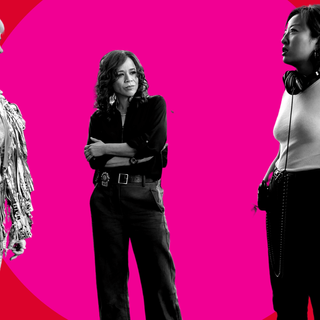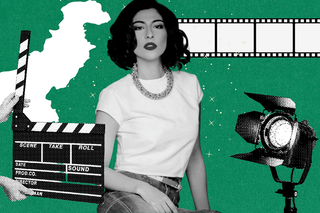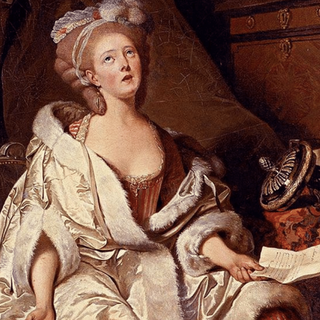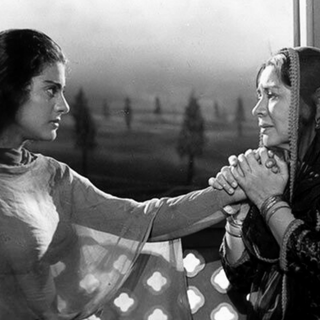
Pakistan’s Entertainment Industry Is Finally Confronting Its Sexual Harassment Problem
Cases like Meesha Shafi’s and others’ highlight how patriarchal norms worsen an exploitative system.

The blurring of personal boundaries has long been accepted as an integral part of art, but cases like Meesha Shafi’s and others are challenging that perception.
It goes without saying that acting is an inherently odd profession. You are put in a room with a group of people you’ve never met before but are now expected to be completely vulnerable with. Actors, writers, directors, and producers face a quiet responsibility to nurture an intimate working relationship to allow for greater creative breakthrough. Artists also spend a large proportion of their time separated from the outside world. These blurred personal boundaries enable the perpetuation of the existing systems of exploitation within the acting industry.
Ahmed Majeed Agloria, a Pakistani method artist who trained at Lee Strasberg, explains how the notion of a set or stage becoming an “alternate reality or another dimension without consequences leads to the blurring of lines, a phenomenon particularly taken advantage of in patriarchal countries like India or Pakistan.”
When I was 17, I was cast in a play in Karachi at the Arts Council. During one of our night shows, I had fumbled my stage direction and exited the stage from where I wasn’t supposed to. As I quickly shuffled off, the director grabbed a chunk of my hair and yanked me back roughly. Unable to express nor understand what had just happened, I went straight home after the show finished and wept.
For many other Pakistani-Muslim women, choosing to step into the media industry also means that they become subjects that viewers can simultaneously objectify and impose questions of morality upon. This makes it further complicated for these women to find redressal.
Shahana Jan, a Pakistani-American actor and content creator, spoke about how even when certain advances and moments made her feel uncomfortable, she’d “often have to shrug it off and act like it didn’t happen.”
“In my mind, I would hear people say, ‘Well, she’s in the media – why’d she put herself in that position in the first place?’”
Related on The Swaddle:
Bollywood Doesn’t Just Protect Predators, It Produces A Culture That Glorifies Them
The burden of maintaining a professional and cordial working relationship thus falls onto the women. A female makeup artist who wished to remain anonymous revealed the measures she takes to protect herself within the industry – from avoiding being “overfriendly” to never giving out her number and refusing to mingle with the crew after rehearsals – the latter being a space where she believes things become murky.
Actress Hina Altaf recently spoke out about how closeness on film sets is exploited. On the talk show, To Be Honest, she said her co-star Faisal Rehman would use intimate scenes to become “too romantic” with her. “For instance, if you hold a finger in a scene, this man will just grab your arm.”
Jan explains how cultures that enable such behavior occur are created at the top. “Many producers were involved in creating an environment that wasn’t just predatory and unsafe for young women but also fostered traits of toxic masculinity in young men – validating certain behaviours to make us feel that this was okay and that if we said anything, we were overreacting.”
Unfortunately, very few film, theatre, advertisement studios, and production houses within Pakistan have an operational Human Resource department or a governing body equipped to handle misconduct allegations. Due to the immense ramifications of filing misconduct allegations – losing out on critical job opportunities or getting boycotted by the industry – women are extremely unlikely to report their harassers. And if they do come forward with their stories, they find themselves inadvertently becoming centres of speculation, upon whom moral investigations are conducted. Oftentimes, to sustain one’s livelihood and pursue the work one’s passionate about, many actors are forced to collaborate with their abusers and harassers.
In October 2017, the #MeToo movement that called out the widespread gender discrimination and sexual harassment within the Hollywood entertainment industry also made its way to Pakistan. It provided a platform for media artists to come forward with their stories. Unfortunately, the stories of those who worked behind the camera – production assistants, makeup artists, grips – were not brought to the forefront despite the crew forming perhaps the most essential part of any production.
The most prominent of these stories was that of singer Meesha Shafi, who alleged sexual harassment against fellow singer Ali Zafar. Following her statement, a handful of Pakistani women came forward sharing similar incidents of Zafar’s inappropriate behavior. However, as Shafi went public with her claim, she faced immense backlash and was shamed incessantly on social media. It worked to only further highlight the misogynistic attitudes still ubiquitous among the masses and the social and emotional cost of coming forward with such statements.
Sajeer Shaikh, an editor at the digital publication, Mangobaaz, explained that terms like “harassment and sexual assault are new to our (Pakistan’s) vocabulary which makes it difficult to articulate what’s happening.” Unfortunately, in Pakistan where tradition and honour heavily prevail, many continue to question the veracity of sexual harassment allegations.
During productions, the cast and crew are thrown together and told that they’re one big happy family and that everything goes. But perhaps that is a flawed way of looking at things. Roles, job descriptions, and boundaries should be more clearly defined – the job of the director should remain principally to direct and the actor to deliver accordingly. Those overseeing the production, from casting directors and producers to stage managers and financiers, must ensure greater accountability and consequences for misdemeanour on set. Before any production is given the green light, harassment policies must be outlined to the entire crew and made clear that such behaviour would not be tolerated in order to ensure that every person feels protected.
Acting is a fabulous profession that manages to stop the flurry of the world around you, albeit for a minute. But in order to preserve that wondrous and surreal feeling more often for female actors, the dynamics and structures within the world of acting need to be thoroughly reformed.
Neha Maqsood is a Pakistani multimedia journalist whose writing on race-relations, global feminism, and South Asian culture has been published in Metro UK, Foreign Policy, Al Jazeera, Business Insider, Buzzfeed India, Byline Times, and other places. Her debut poetry book, Vulnerability, was awarded the 2019-2020 Hellebore Poetry Scholarship Award and will be published by Hellebore Press in 2021.
Related


It’s Okay: Not To Be Cynical All the Time
